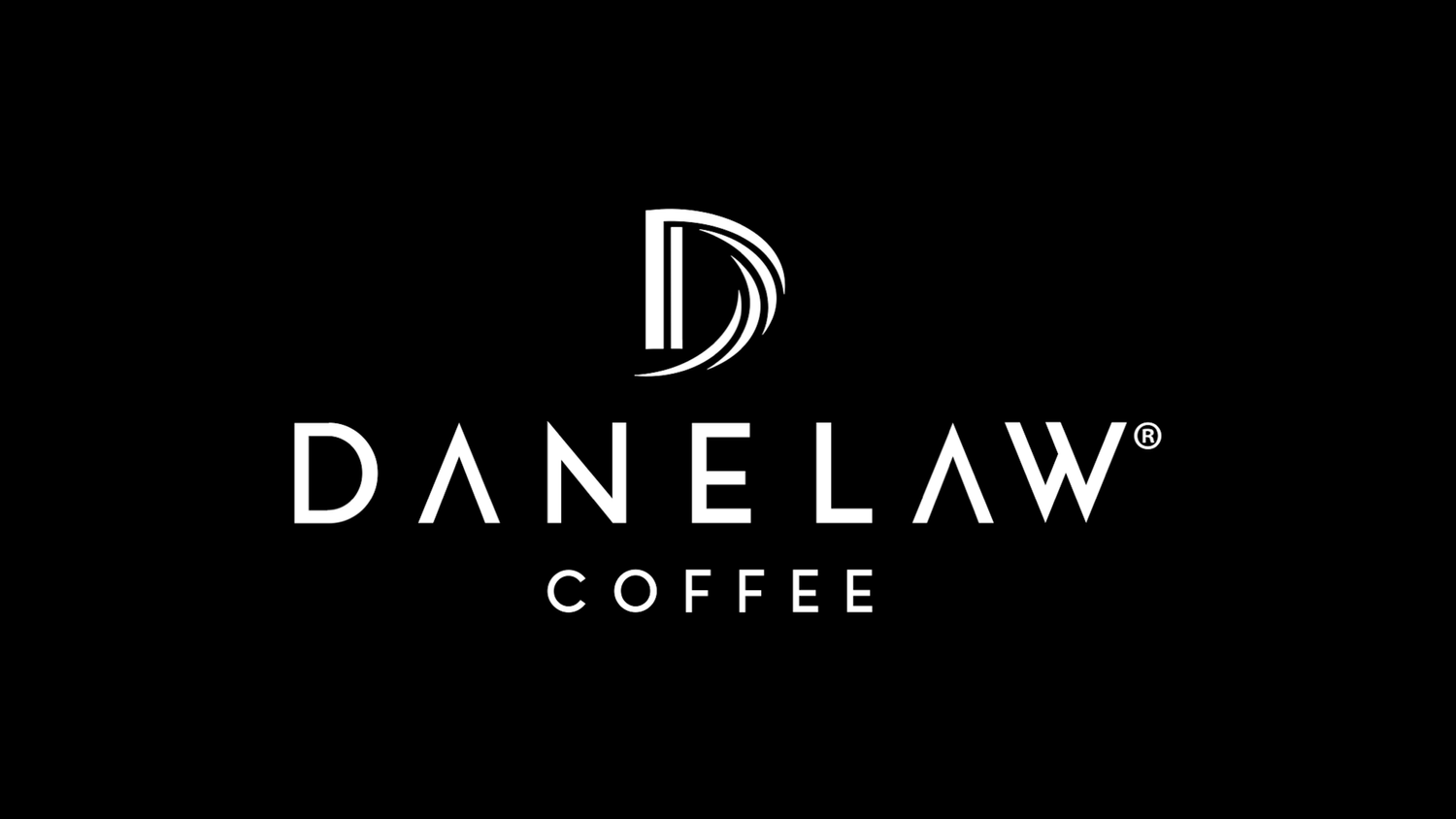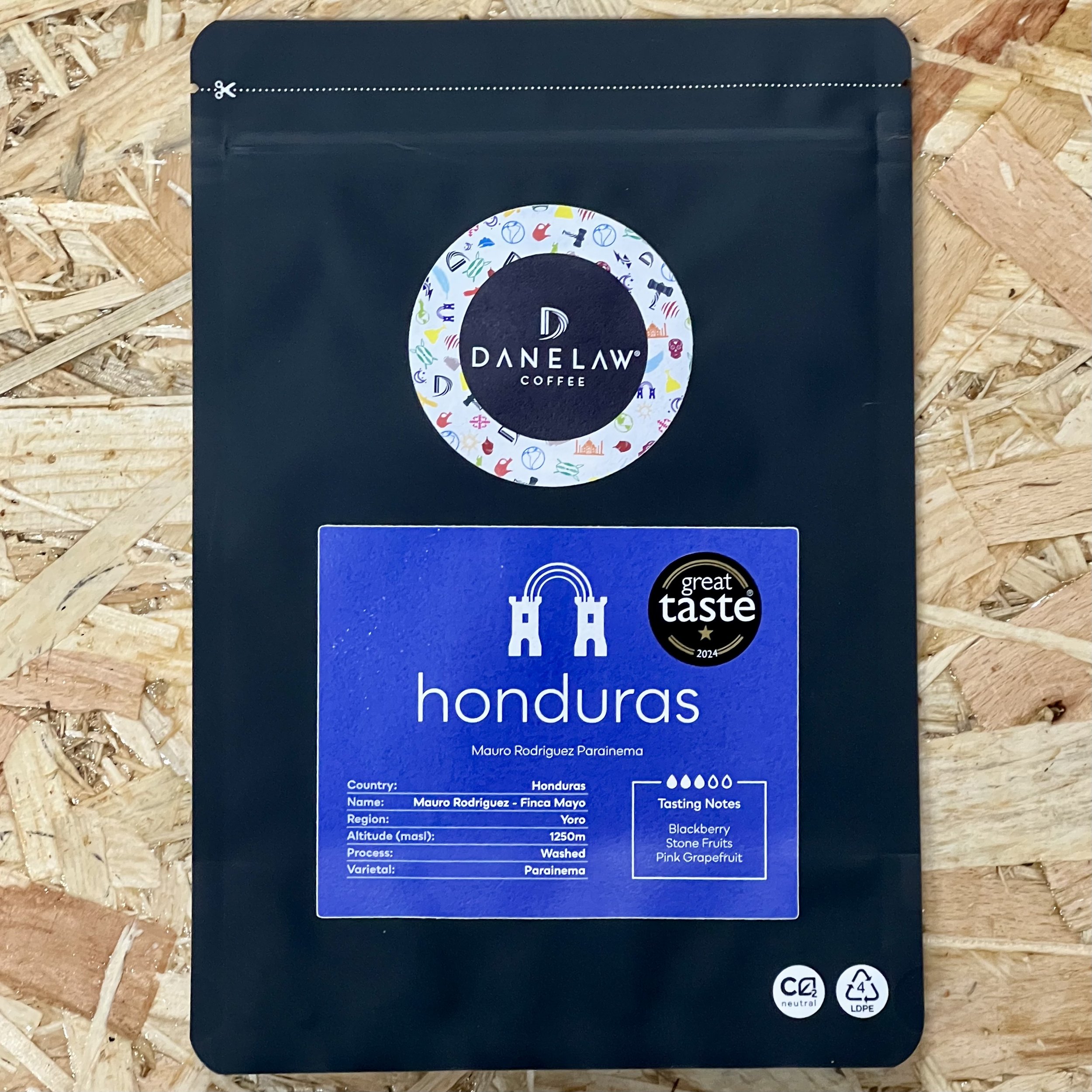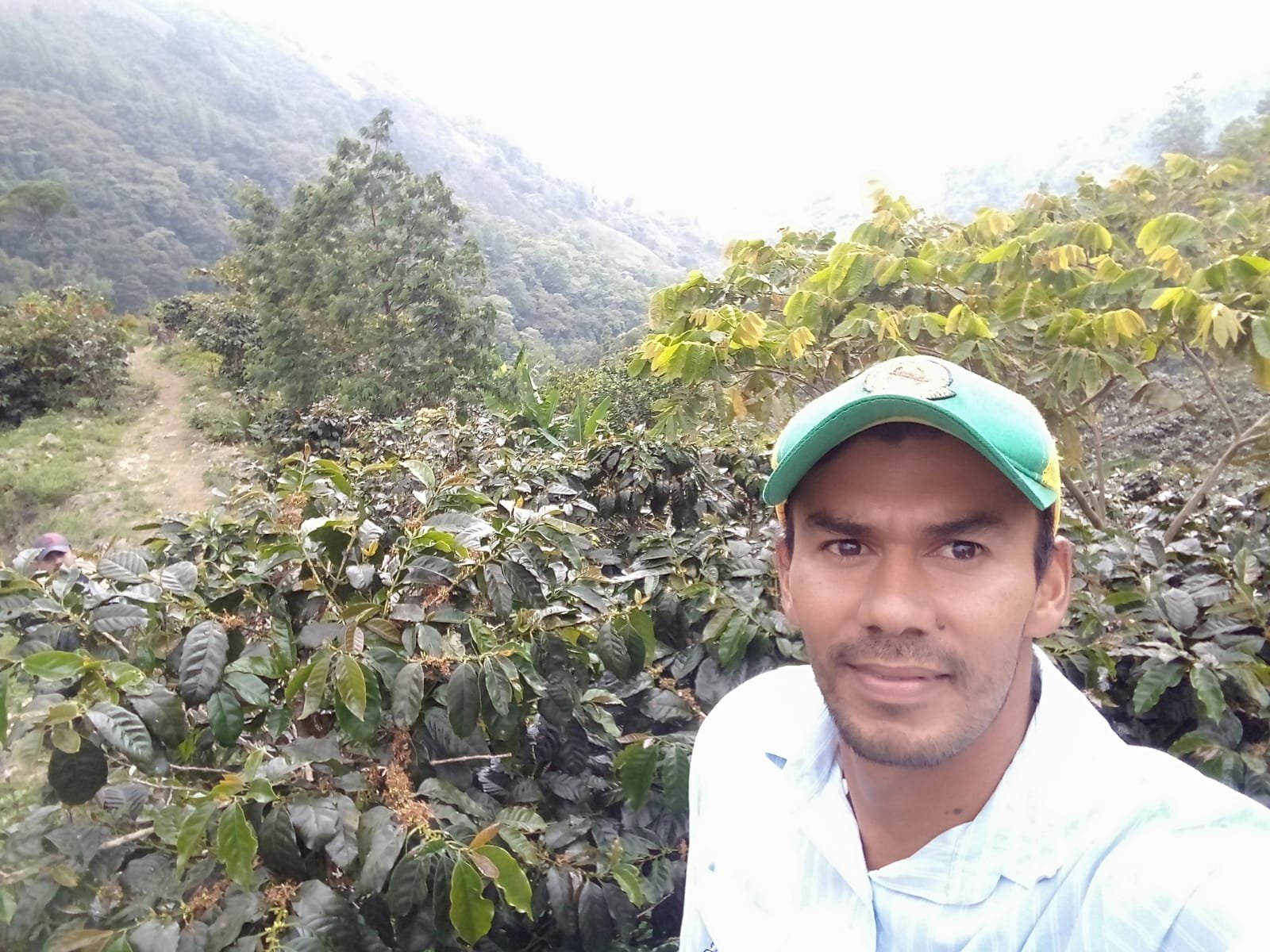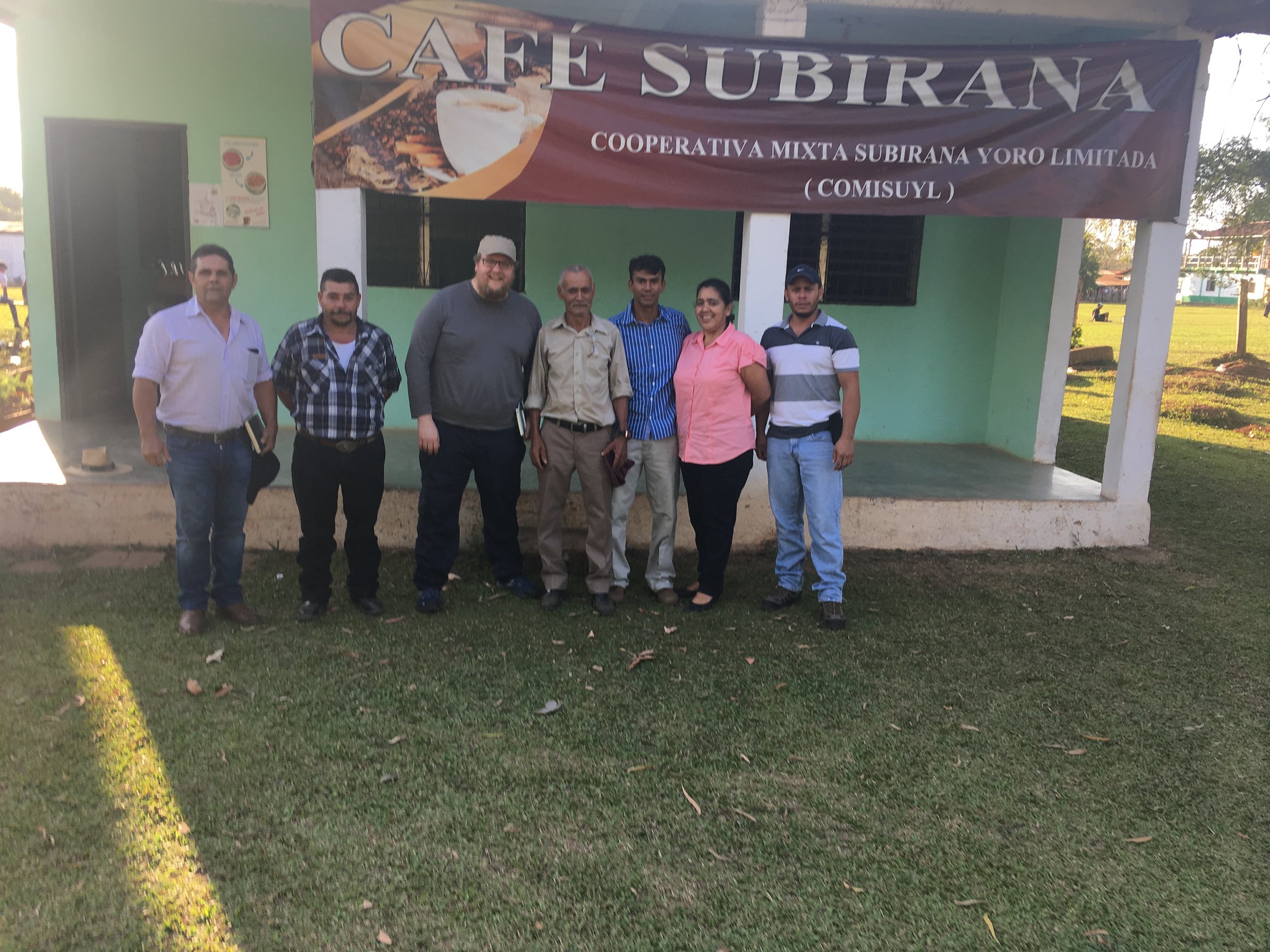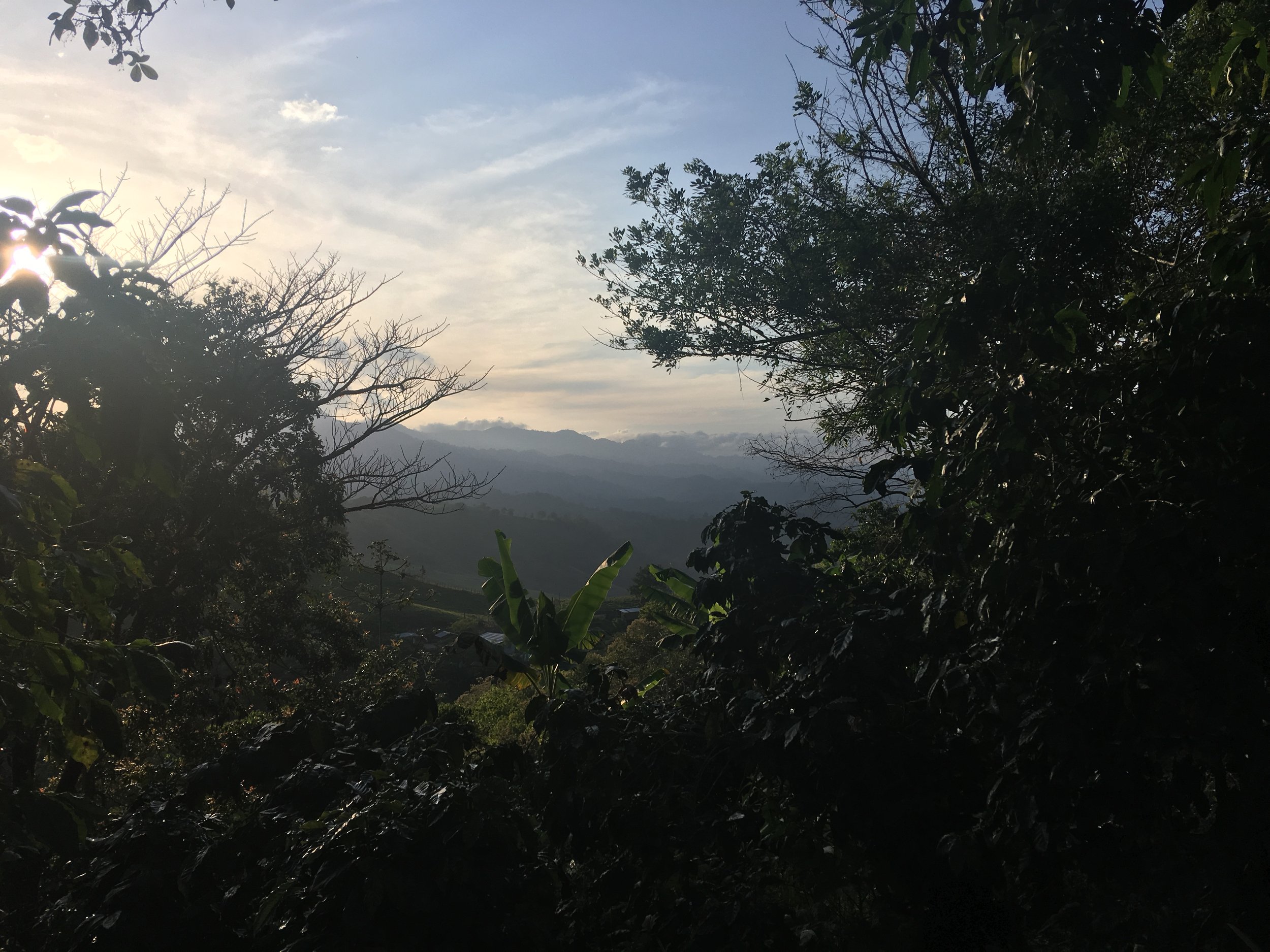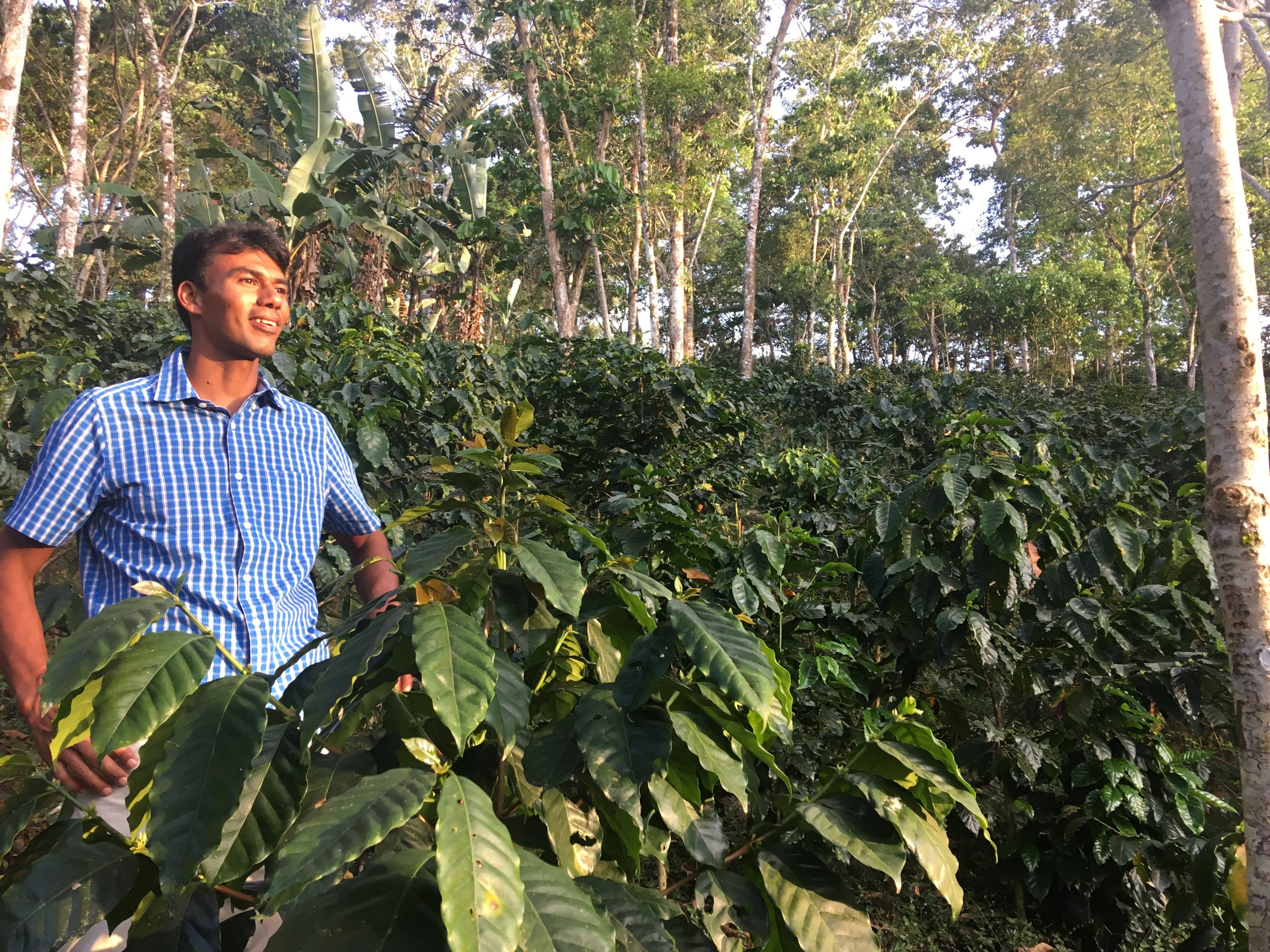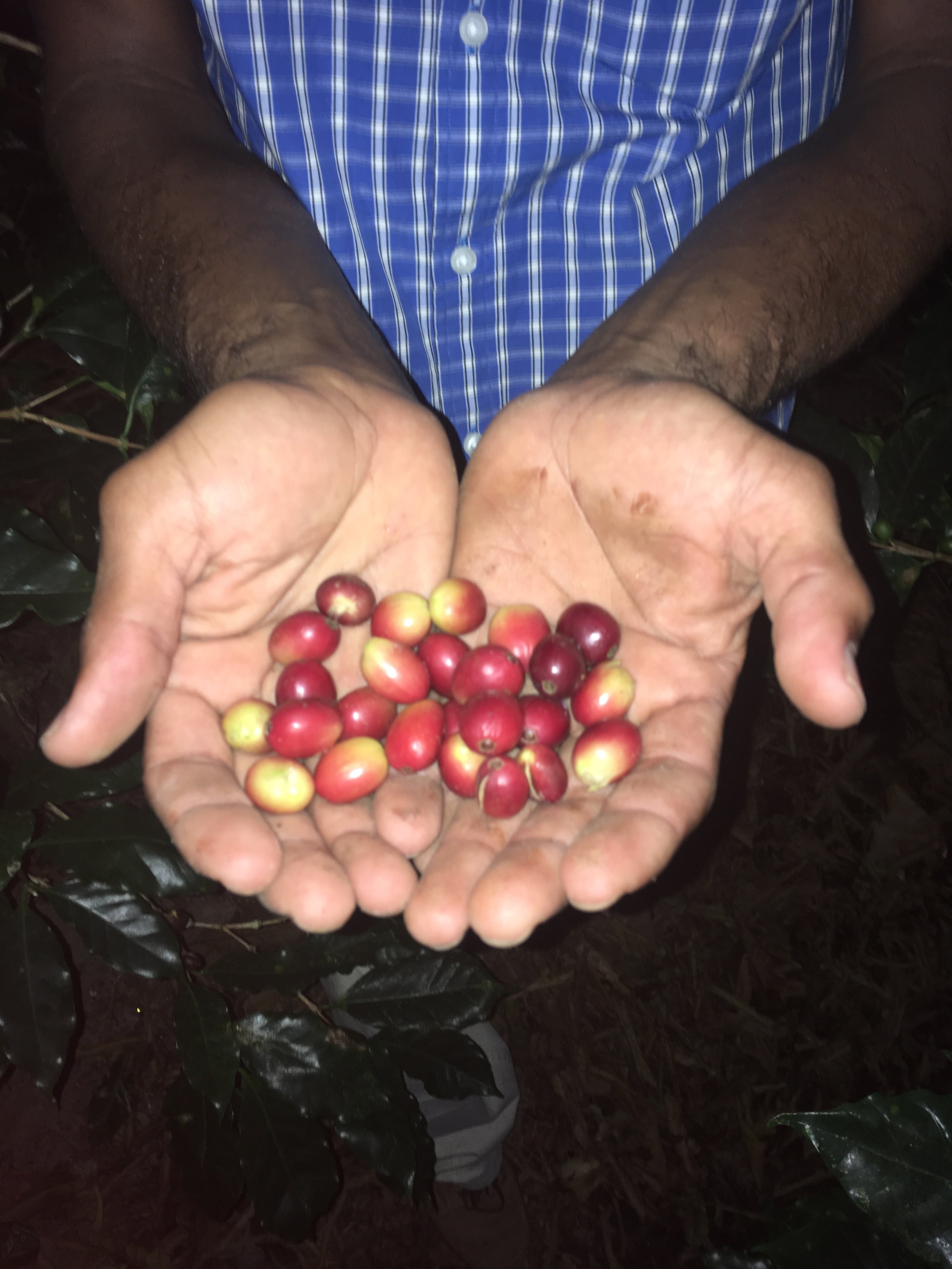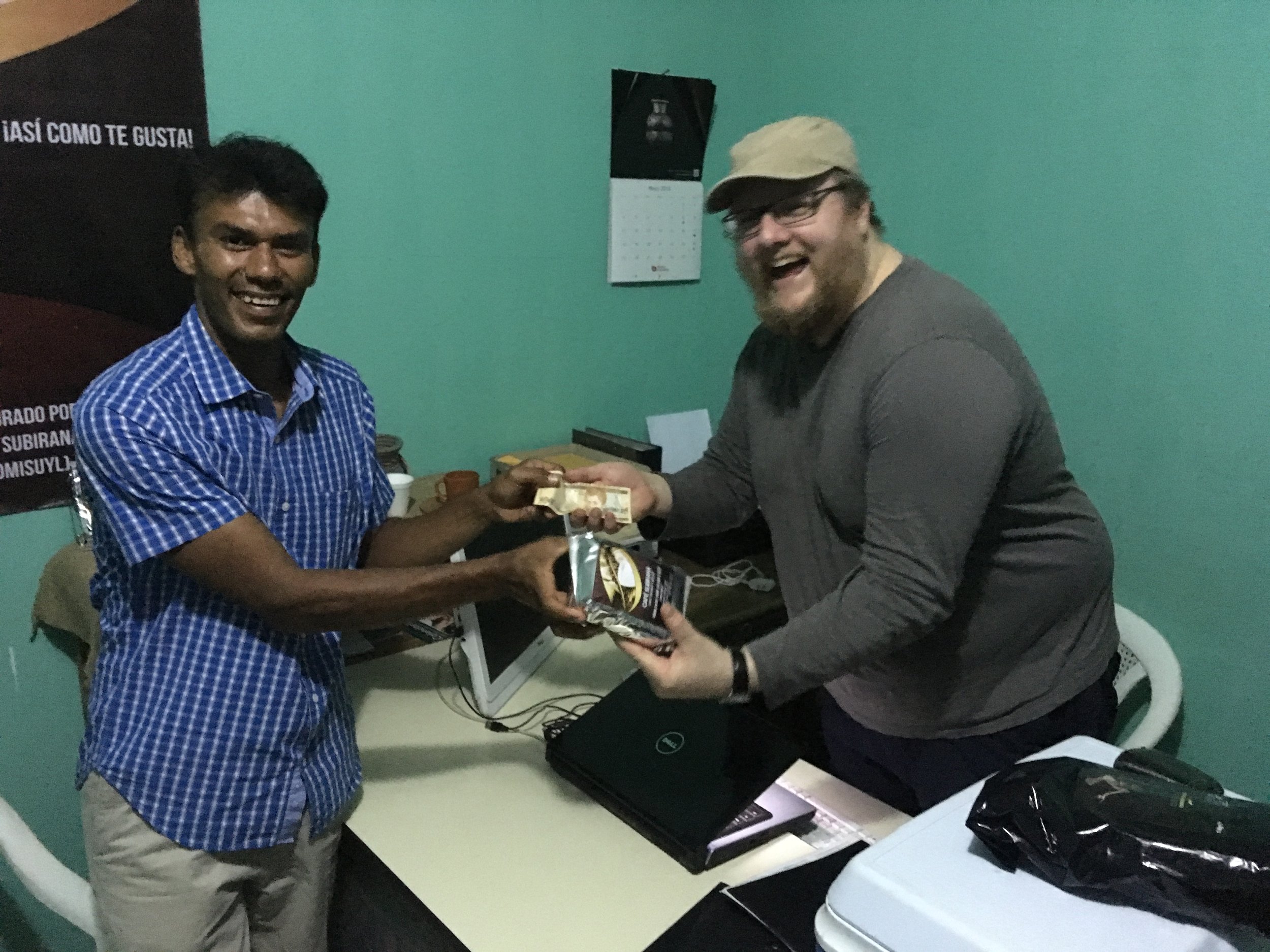Honduras Mauro Rodriguez Washed Parainema
1-STAR GREAT TASTE AWARD WINNER 2024
Mauro’s farm was the first coffee farm I ever set foot on back in 2018. High in the mountains of Yoro in Central Honduras, he looked after me well and we shared a meal together that evening. Since then we’ve kept in touch on WhatsApp.
In 2020, Honduras suffered 2 hurricanes in the space of 2 weeks, which left Mauro’s village, Subirana, cut off as the only bridge was destroyed.
They rebuilt and carried on. Because that’s what they do round here.
In 2011 the area suffered a devastating leaf rust epidemic - a fungus that prevents light reaching the leaves and slowly kills the plants. They had to rip up trees, replant and start again.
The Co-operative that Mauro is president of, COMISUYL, invested heavily in recovering from Leaf Rust. Organic Farming, a partnership with the Mesoamerican Development Institute and the Pico Pijol national park mean that European roasters are able to buy carbon credits from them to offset their CO2 emissions, as the co-op, and particularly its integrated open canopy maintenance of the rainforest means that they are able to offer carbon sequestration as a complementary service to their coffee.
I can’t even SAY carbon sequestration (actually I can, I’ve said it a fair bit over the years.)
The co-op also invested in solar panels to power their central processing site. Here, they have mechanical dryers used to help prepare the coffee, and it’s very unusual for these to be solar powered in Central America - another example of their progressive mindset.
When they re-planted after leaf rust, a lot of their new plants were rust-resistant hybrid varietals. These typically have quite a harsh, sometimes woody character, but they also have a unique, thick, creamy body (like me) making them ideal for espresso blends.
Mauro’s coffee is different. He was especially selective of the cherries he picked, selecting only the ripest Parainema cherries. This is a hybrid too, but a much cleaner, sweeter version.
This was then processed carefully using the washed method, where all the fruit is removed quickly, the coffee fermented for 12-24 hours and then dried.
The end result is spectacular. A delicious coffee, light, delicate, sweet and complex. My tasting notes are Blackberry, Plum and Pink Grapefruit with a syrupy sweetness.
I hope every cup you drink of this means as much to you as it does to me. iGracias Mauro!
1-STAR GREAT TASTE AWARD WINNER 2024
Mauro’s farm was the first coffee farm I ever set foot on back in 2018. High in the mountains of Yoro in Central Honduras, he looked after me well and we shared a meal together that evening. Since then we’ve kept in touch on WhatsApp.
In 2020, Honduras suffered 2 hurricanes in the space of 2 weeks, which left Mauro’s village, Subirana, cut off as the only bridge was destroyed.
They rebuilt and carried on. Because that’s what they do round here.
In 2011 the area suffered a devastating leaf rust epidemic - a fungus that prevents light reaching the leaves and slowly kills the plants. They had to rip up trees, replant and start again.
The Co-operative that Mauro is president of, COMISUYL, invested heavily in recovering from Leaf Rust. Organic Farming, a partnership with the Mesoamerican Development Institute and the Pico Pijol national park mean that European roasters are able to buy carbon credits from them to offset their CO2 emissions, as the co-op, and particularly its integrated open canopy maintenance of the rainforest means that they are able to offer carbon sequestration as a complementary service to their coffee.
I can’t even SAY carbon sequestration (actually I can, I’ve said it a fair bit over the years.)
The co-op also invested in solar panels to power their central processing site. Here, they have mechanical dryers used to help prepare the coffee, and it’s very unusual for these to be solar powered in Central America - another example of their progressive mindset.
When they re-planted after leaf rust, a lot of their new plants were rust-resistant hybrid varietals. These typically have quite a harsh, sometimes woody character, but they also have a unique, thick, creamy body (like me) making them ideal for espresso blends.
Mauro’s coffee is different. He was especially selective of the cherries he picked, selecting only the ripest Parainema cherries. This is a hybrid too, but a much cleaner, sweeter version.
This was then processed carefully using the washed method, where all the fruit is removed quickly, the coffee fermented for 12-24 hours and then dried.
The end result is spectacular. A delicious coffee, light, delicate, sweet and complex. My tasting notes are Blackberry, Plum and Pink Grapefruit with a syrupy sweetness.
I hope every cup you drink of this means as much to you as it does to me. iGracias Mauro!
1-STAR GREAT TASTE AWARD WINNER 2024
Mauro’s farm was the first coffee farm I ever set foot on back in 2018. High in the mountains of Yoro in Central Honduras, he looked after me well and we shared a meal together that evening. Since then we’ve kept in touch on WhatsApp.
In 2020, Honduras suffered 2 hurricanes in the space of 2 weeks, which left Mauro’s village, Subirana, cut off as the only bridge was destroyed.
They rebuilt and carried on. Because that’s what they do round here.
In 2011 the area suffered a devastating leaf rust epidemic - a fungus that prevents light reaching the leaves and slowly kills the plants. They had to rip up trees, replant and start again.
The Co-operative that Mauro is president of, COMISUYL, invested heavily in recovering from Leaf Rust. Organic Farming, a partnership with the Mesoamerican Development Institute and the Pico Pijol national park mean that European roasters are able to buy carbon credits from them to offset their CO2 emissions, as the co-op, and particularly its integrated open canopy maintenance of the rainforest means that they are able to offer carbon sequestration as a complementary service to their coffee.
I can’t even SAY carbon sequestration (actually I can, I’ve said it a fair bit over the years.)
The co-op also invested in solar panels to power their central processing site. Here, they have mechanical dryers used to help prepare the coffee, and it’s very unusual for these to be solar powered in Central America - another example of their progressive mindset.
When they re-planted after leaf rust, a lot of their new plants were rust-resistant hybrid varietals. These typically have quite a harsh, sometimes woody character, but they also have a unique, thick, creamy body (like me) making them ideal for espresso blends.
Mauro’s coffee is different. He was especially selective of the cherries he picked, selecting only the ripest Parainema cherries. This is a hybrid too, but a much cleaner, sweeter version.
This was then processed carefully using the washed method, where all the fruit is removed quickly, the coffee fermented for 12-24 hours and then dried.
The end result is spectacular. A delicious coffee, light, delicate, sweet and complex. My tasting notes are Blackberry, Plum and Pink Grapefruit with a syrupy sweetness.
I hope every cup you drink of this means as much to you as it does to me. iGracias Mauro!
